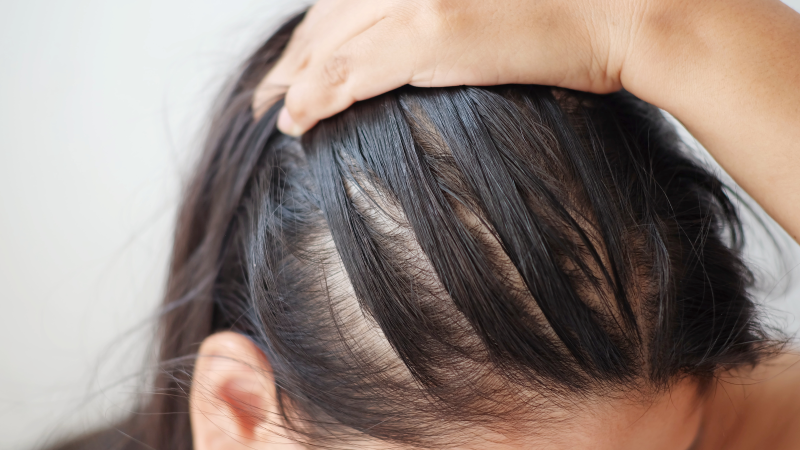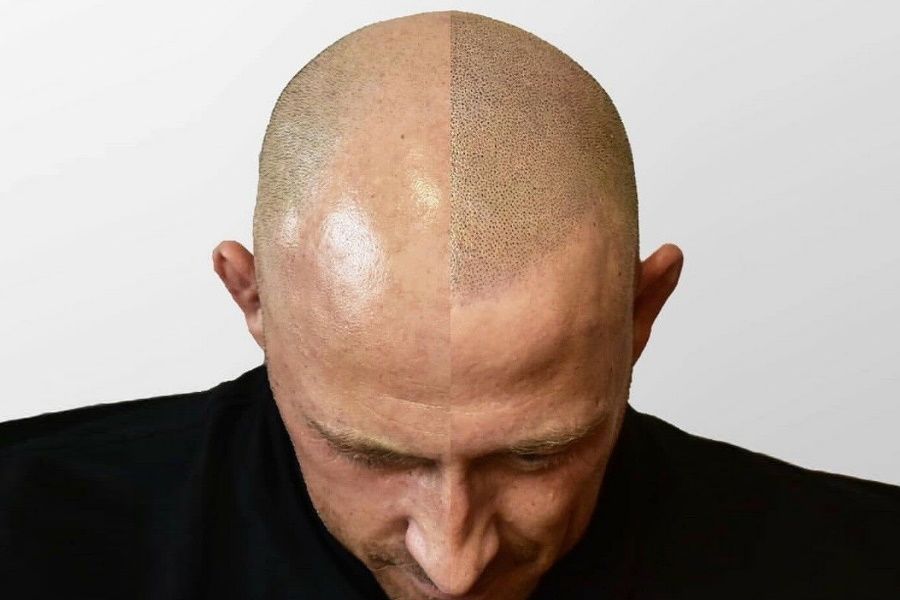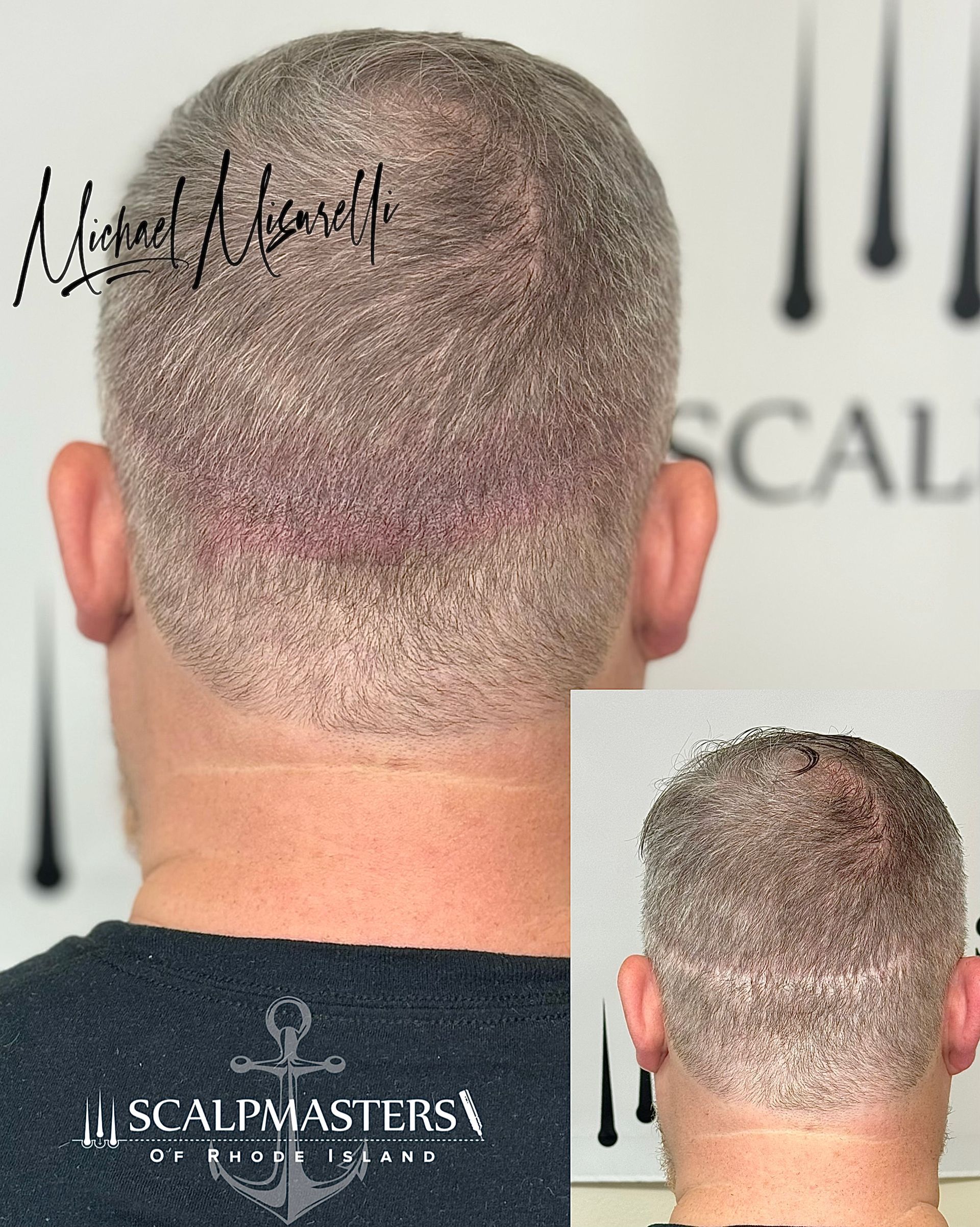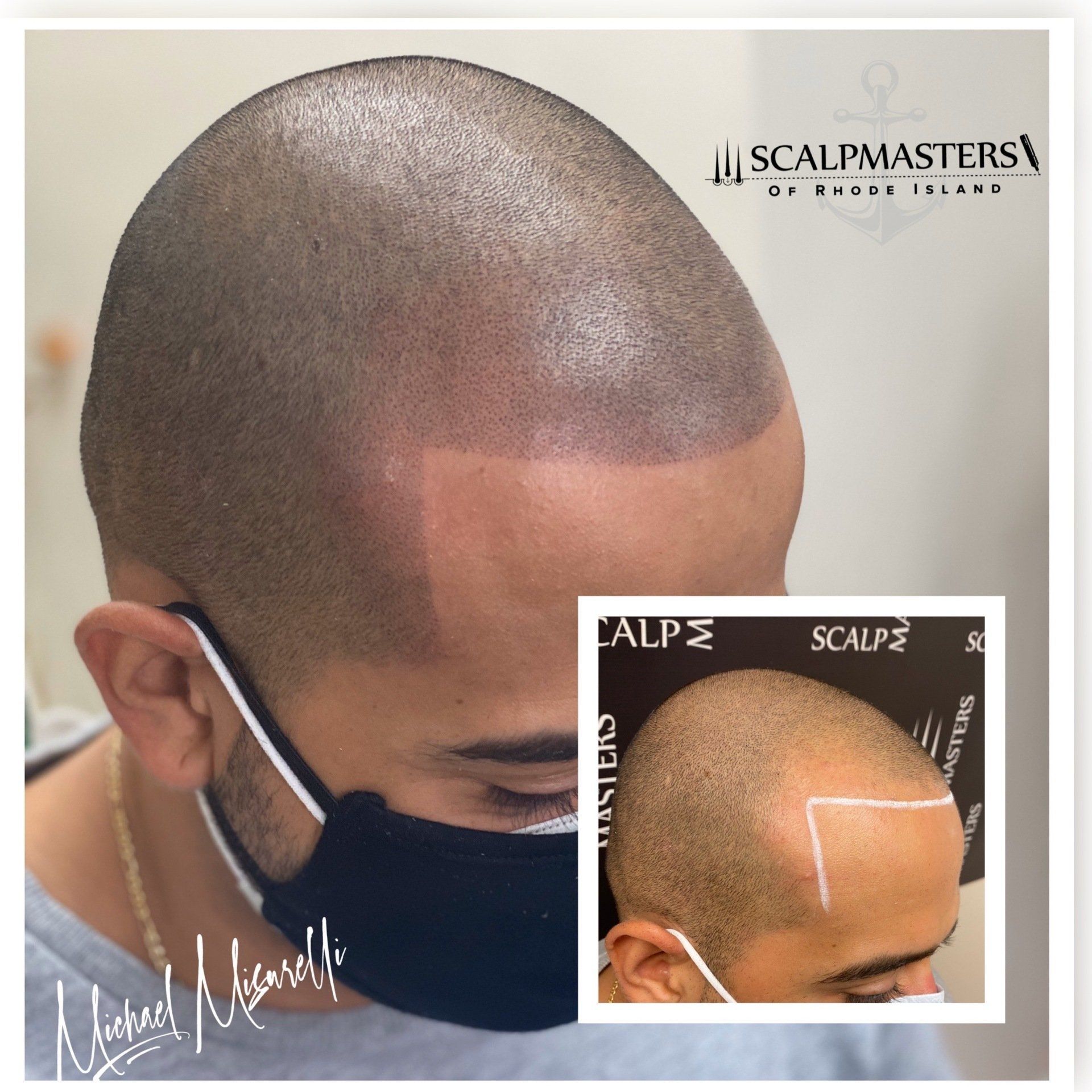Understanding Hair Loss in Women
Understanding Hair Loss in Women
Hair loss in women is a prevalent concern, differing from male pattern baldness in cause and pattern. While many perceive it as a male-dominated issue, many women face the challenge of hair thinning and baldness. The reasons for hair loss in women can be multifaceted, encompassing genetic, medical, and lifestyle factors. Understanding these causes of male or female pattern baldness can provide a foundation for seeking effective treatments.

Common Causes of Hair Loss in Women
One of the most prevalent causes of hair loss in women is androgenic alopecia, colloquially referred to as female pattern baldness. Unlike the sharp receding hairlines characteristic of its male counterpart, this condition primarily manifests as a gradual thinning of hair, particularly on the crown and top of the head. The underlying causes can range from genetic predispositions to hormonal changes. Interestingly, while men with this condition often show noticeable hair loss, women usually experience hair thinning without going entirely bald.
In addition to genetic factors, external influences play a significant role in hair loss among women. Medications, especially hormonal ones like birth control pills, can sometimes disrupt the natural hair growth cycle, leading to shedding or thinning. Medical conditions, particularly hormonal imbalances like polycystic ovary syndrome (PCOS), can significantly affect hair health. Furthermore, lifestyle factors such as acute stress, physical trauma, and even the prolonged use of certain aggressive hair products can damage hair follicles, leading to temporary or permanent hair loss for bald women.
The Emotional Impact: When Hair Loss Hits Home
Hair loss isn't just a physical ordeal; it carries profound emotional implications, especially for women. In many cultures and societies, a woman's hair is seen as a symbol of her beauty, femininity, and sometimes even her health. As a result, the onset of hair thinning in women can be deeply distressing. Unlike male baldness, which has found some societal acceptance and is often portrayed in media positively, bald or balding women often find themselves on the receiving end of unwarranted pity, curious stares, or even derision.
This societal pressure and the internal battle with changing self-image can lead to a cascade of psychological effects. For many, diminished self-esteem becomes a daily struggle. They might start avoiding social interactions, retreat from public outings, or shy away from photographs, fearing judgment or pity. In more severe cases, chronic stress from hair loss can even lead to more profound mental health issues, including anxiety disorders or depression.
Traditional Hair Loss Treatments: A Brief Overview
The pursuit to combat hair loss has led to the development of myriad treatments over the years. Minoxidil, which started its journey as a remedy for high blood pressure, was later found to have hair growth-promoting properties. Initially aimed at treating male pattern baldness, it's now a widely accepted solution for female pattern hair loss too. Its application is non-invasive, usually in the form of a topical lotion or foam.
For those looking for more permanent solutions, hair transplantation has emerged as a popular choice. This procedure involves extracting hair follicles from a denser part of the scalp or body and implanting them into areas showing thinning or baldness. While effective, the procedure is surgical and can be both expensive and time-consuming. Then there are camouflage treatments. From wigs and hairpieces to volumizing hair products, these solutions don't necessarily promote hair growth but give the illusion of a fuller scalp. The beauty of these treatments is in their immediacy, but the flip side is that they don't address the root causes of hair loss.
Common Problems With Traditional Hair Loss Treatments
Not all hair loss treatments for women offer guaranteed results. Side effects are a major concern, especially with medications that might disrupt hormonal balances or the immune system. Additionally, procedures like hair transplantation can be invasive, expensive, and might not always yield natural-looking results. For some women, the side effects or unsatisfactory outcomes can be more distressing than the initial hair loss. That is why it is critical to explore other treatment options as well.
Are There Other Treatment Options Available?
Yes, advancements in cosmetic treatments have introduced innovative solutions for hair loss. Among these is scalp micropigmentation (SMP), a technique gaining traction for its efficacy and minimal side effects. Scalp micropigmentation doesn't rely on hair growth but rather replicates the appearance of fuller hair. It's especially suitable for those seeking immediate results without undergoing surgical procedures. For all of these reasons, it has become more popular during the past few years.
Scalp Micropigmentation as a Hair Loss Treatment Option for Women
Scalp micropigmentation (SMP) is a non-invasive treatment, where specialized equipment is used to deposit pigment into the scalp, mimicking hair follicles. Unlike tattoos, SMP uses specialized needles and pigments to ensure a natural appearance. It's suitable for women facing any type of hair loss, from androgenetic alopecia to hair loss due to medical conditions. Moreover, SMP can be tailored to complement existing hair, ensuring a seamless blend.
The Top Benefits of Scalp Micropigmentation for Female Hair Loss
Scalp micropigmentation (SMP) has emerged as a popular solution for women battling hair loss. It offers a range of benefits that address both aesthetic and emotional concerns:
- Immediate Results: SMP provides visible outcomes swiftly. After just a few sessions, women can observe a fuller-looking scalp.
- No Waiting Period: Unlike some treatments, there's no agonizing wait for hair to grow. The effects are seen almost instantly.
- Minimal Side Effects: With SMP, concerns about potential side effects, common with some medications, are minimal.
- Durability: One of the compelling aspects of SMP is its longevity. With proper care, its effects can be sustained for several years.
- Empowerment: Beyond aesthetics, SMP serves as a tool of empowerment. It enables women to reclaim their confidence.
- Freedom from Concerns: Post-treatment, women can step out boldly, putting aside persistent hair loss worries.
For women navigating the complex world of hair loss solutions, scalp micropigmentation stands out, offering both immediate visual enhancement and long-term peace of mind.
Taking Care of Your Scalp Micropigmentation Treatment: Aftercare Tips
To ensure the longevity of your SMP treatment, it's crucial to follow aftercare guidelines. Avoid direct sun exposure to the scalp for the initial days post-treatment, as UV rays can fade the pigment. Keep the scalp clean but avoid using harsh chemicals or abrasive hair products. In addition, moisturizing the scalp can prevent dryness and flaking, ensuring the pigment remains vibrant. Regular touch-ups every few years can help maintain the pristine condition of the treatment. If you are looking for the best possible results, we are here to help you.
Call Scalpmasters of Rhode Island Today To Schedule an Appointment
If you're a woman struggling with hair loss, know that you're not alone. Scalpmasters of Rhode Island specializes in providing scalp micropigmentation, offering a transformative solution for female hair thinning and baldness. Don't let hair loss dictate your confidence or self-worth. Contact us today to learn more about how we can help you regain a fuller-looking scalp and renewed confidence. Your journey to a more confident self starts with one call to Scalpmasters of Rhode Island.
Learn More
What's New
Latest Hair Loss Solutions & Guides




